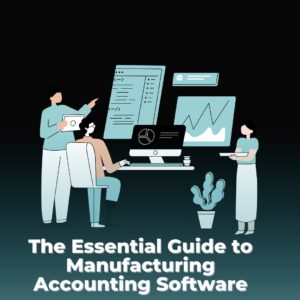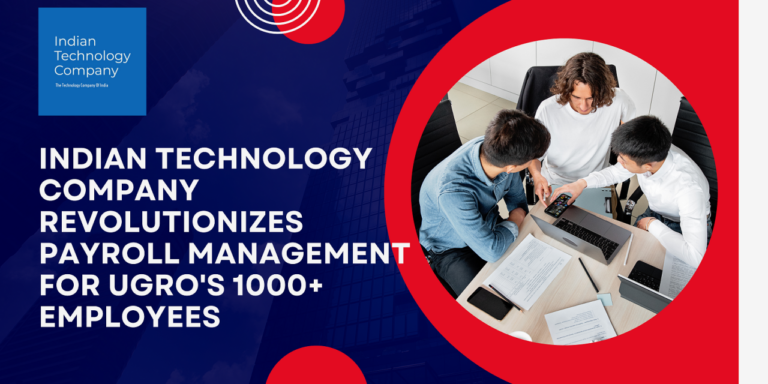The Essential Guide to Manufacturing Accounting Software
The manufacturing industry is a complex ecosystem that requires seamless coordination between production, supply chain, inventory, and financial management. In such a high-stakes environment, having robust accounting software tailored to the specific needs of manufacturers is not just a luxury—it’s a necessity. Manufacturing accounting software simplifies operations, enhances decision-making, and ensures regulatory compliance, enabling businesses to focus on growth.
In this article, we delve deep into manufacturing accounting software, exploring its features, benefits, key considerations for choosing the right solution, and the trends shaping its future.
- What is Manufacturing Accounting Software?
Manufacturing accounting software is a specialized tool designed to integrate the unique financial and operational needs of the manufacturing industry. Unlike standard accounting software, it bridges financial management with production processes, providing real-time insights into cost accounting, inventory management, order tracking, and overall operational efficiency.
Key Features:
- Job costing and cost tracking
- Inventory valuation and control
- Production planning and scheduling integration
- Supply chain and vendor management
- Budgeting and financial forecasting
- Compliance with manufacturing-specific regulations
- Why Do Manufacturers Need Specialized Accounting Software?
Manufacturers face unique challenges that generic accounting software cannot address. These include:
- Complex Costing Structures: Manufacturers need to track costs at every stage—raw materials, labor, overhead, and finished goods.
- Inventory Management: Accurate inventory valuation and control are essential to minimize waste and avoid overproduction.
- Multi-Level Operations: With multiple production facilities or product lines, manufacturers need consolidated financial reports.
- Regulatory Compliance: Adhering to industry standards, tax regulations, and safety guidelines requires detailed tracking and reporting capabilities.
By addressing these challenges, manufacturing accounting software ensures streamlined operations and improved profitability.
- Key Features of Manufacturing Accounting Software
A robust manufacturing accounting solution comes equipped with several features designed to meet the industry’s needs. Here’s a closer look:
a) Cost Accounting
- Tracks the total cost of production, including direct and indirect expenses.
- Provides visibility into cost breakdowns per product or job.
- Supports pricing decisions and profit margin analysis.
b) Inventory Management
- Real-time tracking of raw materials, work-in-progress, and finished goods.
- Automates inventory reorder levels and minimizes stockouts.
- Integration with barcode and RFID systems for accuracy.
c) Production Planning and Scheduling
- Links financial data with production workflows.
- Tracks budgets against actual costs during production cycles.
d) Payroll and Labor Management
- Calculates labor costs as part of job costing.
- Integrates with time tracking systems for accurate payroll.
e) Financial Reporting and Forecasting
- Generates detailed financial statements, including P&L reports, cash flow analysis, and balance sheets.
- Supports forecasting based on historical data and market trends.
f) Tax Compliance and Audit Readiness
- Automates tax calculations, including GST, VAT, or other applicable taxes.
- Prepares audit-ready financial records to ensure regulatory compliance.
- Benefits of Using Manufacturing Accounting Software
Implementing the right accounting software can transform your manufacturing operations. Here are the core benefits:
a) Enhanced Decision-Making
Access to real-time financial and operational data allows manufacturers to make informed decisions about pricing, production, and resource allocation.
b) Improved Operational Efficiency
Automated workflows reduce manual data entry, minimize errors, and streamline processes across departments.
c) Cost Savings
By optimizing inventory levels and tracking costs, manufacturers can identify areas to cut expenses and boost profitability.
d) Scalability
Modern accounting software grows with your business, supporting additional users, locations, and functionalities as needed.
e) Compliance and Risk Mitigation
Accurate record-keeping and automated compliance ensure adherence to regulations, minimizing risks of penalties or audits.
- How to Choose the Right Manufacturing Accounting Software
Selecting the right software requires careful consideration of your business needs, budget, and long-term goals. Here’s a step-by-step guide:
a) Identify Business Needs
Evaluate your current pain points—are you struggling with inventory tracking, cost control, or financial reporting? Define the features you need.
b) Ensure Industry-Specific Features
Look for software designed specifically for manufacturers, offering modules like cost accounting, inventory control, and production planning.
c) Evaluate Integration Capabilities
Ensure the software integrates with existing systems like ERP, CRM, or supply chain management tools.
d) Check Scalability
Choose a solution that accommodates business growth, whether through additional features, user licenses, or cloud capabilities.
e) Assess User-Friendliness
Opt for a solution that is intuitive for your team, with minimal training requirements.
f) Consider Vendor Support
Check for customer support, training resources, and regular software updates from the vendor.
g) Factor in Cost
Weigh the upfront cost against the long-term ROI. Consider both subscription-based and perpetual license models.
- Top Manufacturing Accounting Software Solutions
Here are some of the leading manufacturing accounting software solutions on the market:
- QuickBooks Manufacturing Edition: A popular choice for small manufacturers with job costing and inventory management.
- NetSuite ERP: A comprehensive cloud-based ERP system with robust financial and manufacturing tools.
- SAP Business One: Designed for medium and large manufacturers, offering advanced production planning and financial integration.
- Odoo: An open-source solution with customizable modules for accounting, inventory, and production.
- Fishbowl Manufacturing: Specialized software for inventory and manufacturing management with seamless QuickBooks integration.
- Future Trends in Manufacturing Accounting Software
The evolution of technology is shaping the future of manufacturing accounting software. Key trends include:
a) AI and Machine Learning
AI-powered tools can predict demand, optimize inventory, and automate financial forecasting.
b) Cloud-Based Solutions
Cloud computing ensures data accessibility, scalability, and reduced infrastructure costs.
c) IoT Integration
Integration with IoT devices enables real-time tracking of materials and assets, feeding accurate data into accounting systems.
d) Blockchain for Supply Chain Transparency
Blockchain technology is enhancing transparency in supply chains, ensuring accurate cost tracking.
e) Sustainability Metrics
Newer solutions are incorporating modules to track carbon footprints and sustainability metrics.
Conclusion
Manufacturing accounting software is an indispensable tool for modern manufacturers, enabling them to manage costs, streamline operations, and drive profitability. By investing in the right solution, manufacturers can not only stay competitive but also unlock new opportunities for growth and innovation.
Whether you’re a small manufacturer or a large enterprise, choosing a solution tailored to your specific needs will be the cornerstone of your financial and operational success. Take the time to evaluate your options, consider future scalability, and implement a system that empowers your business for years to come.





